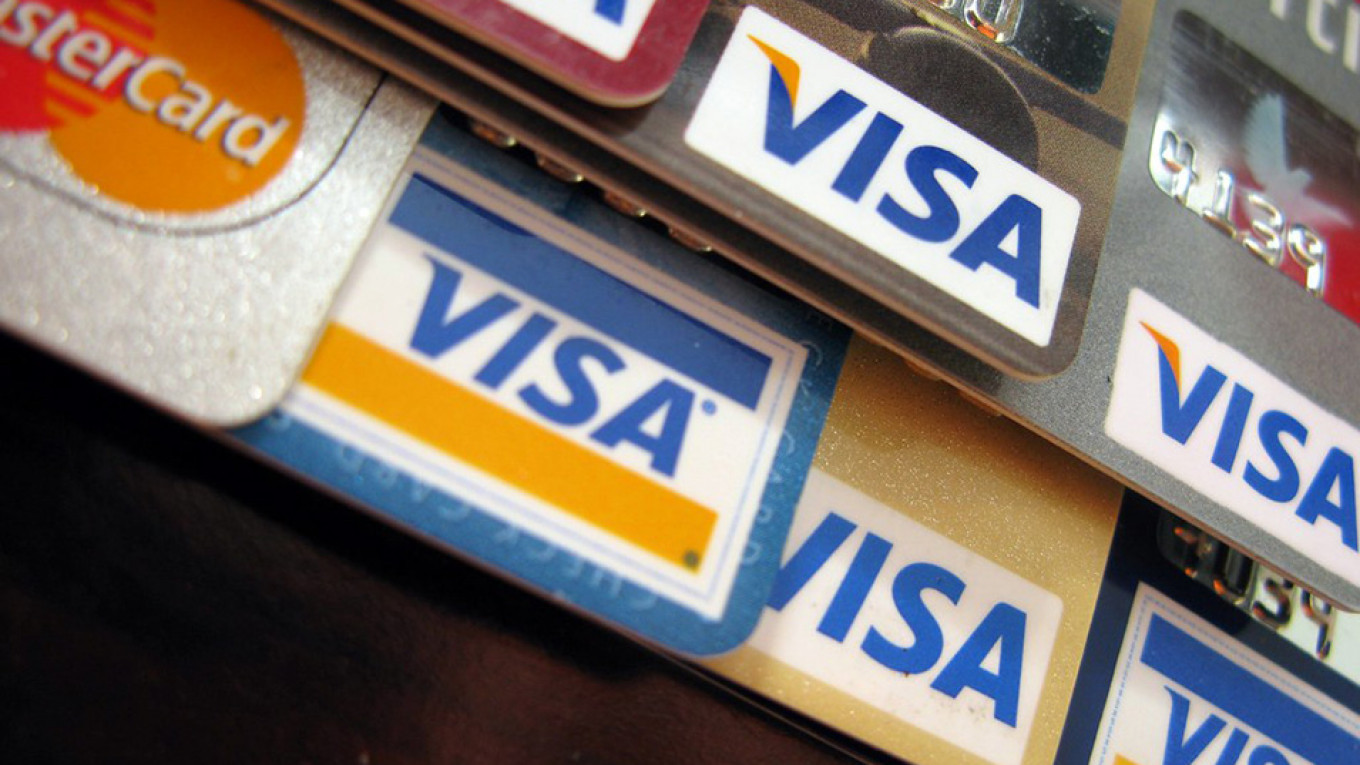
New Russian payment system laws could lead the world’s largest credit and debit card companies Visa and Mastercard to exit the country’s market, the Kommersant business daily reported on Friday.
U.S.-based Visa and Mastercard stopped servicing bank cards in annexed Crimea after the United States imposed sanctions on Russia in 2014. Russia created its own card payment system because it feared U.S. and European sanctions against some Russian banks and businesspeople over Crimea could block Visa and Mastercard transactions.
Russian lawmakers are now considering new legislation that will in effect prohibit international payment systems from refusing to process transactions in compliance with sanctions, Kommersant reported.
“We shouldn’t encourage such shutoffs [in operations by payment systems] and tolerate discriminatory rules,” says the bill’s co-author Anatoly Aksakov, the head of the State Duma Financial Markets Committee.
If passed, companies like Visa and Mastercard will be required to register in Russia within a six-month deadline or face a ban.
Visa and Mastercard would rather wind down operations in Russia than comply with the new rules, Kommersant cited an unnamed source close to the international payment systems as saying. The companies themselves declined to comment on the story.
Visa later told the state-run RIA Novosti news agency that it plans to ensure “uninterrupted” work in Russia.
Visa and Mastercard’s Russian subsidiaries won’t be able to comply with the law even if it passes because they are a part of their respective global companies with U.S. headquarters, an independent Russian expert in payment systems who declined to be named told The Moscow Times.
“Visa, which is headquartered in San Francisco, and Mastercard in Purchase, N.Y., must comply with American legislation, including sanction orders issued by the U.S. Office of Foreign Assets Control agency,” he said. “Amendments to Russian law could result in local offices of international payment systems to be out of compliance, which could lead to problems with Russian cards’ acceptance at home and abroad.”
Russia’s Central Bank told Kommersant it supports the new payment system rules and hopes they will be adopted this summer.
The bill quietly passed its first of three readings in the State Duma this spring. Russia’s lower house of parliament is scheduled to consider it in second reading on July 23. The upper-house Federation Council must vote on it once and President Vladimir Putin needs to sign it before the bans take effect.
Moscow’s previous attempts to criminalize compliance with U.S. sanctions have been watered down or postponed following outcry from the Russian business community.
